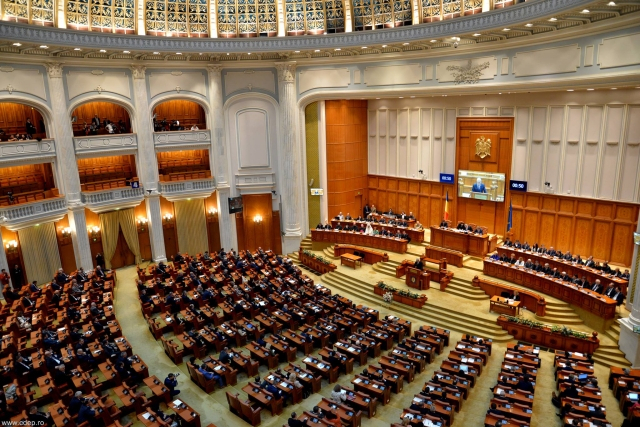Senate starts debates on controversial emergency decree
The emergency decree levying additional taxes on banks and energy companies will be debated in Parliament this week.

Bogdan Matei, 18.02.2019, 14:08
After having caused heated debates, the emergency decree no. 114, issued by the Romanian Government, will be debated by Parliament this week. The decree introduces new fiscal and budgetary measures among which the so-called ‘tax on greed’, that provides for the additional taxation of energy companies and banks, which, according to the leftist majority, obtain immorally and unnaturally big profits in Romania.
Senators in the budget and finance committee will draft a final report on the aforementioned decree on Tuesday. MPs in the rightwing opposition have already asked for the rejection of the decree, as they claim its provisions would affect essential domains such as energy security, the banking sector and the telecommunication industry. The Liberal leader Ludovic Orban draws attention that the emergency decree will have a negative impact on private pension funds as well.
Ludovic Orban: “The share capital required under Decree 114 is 11 times bigger than the present subscribed share capital. Actually, to this day, the initial investment made by the pension fund administrators has not been entirely recuperated. With the obligation to increase the share capital depending on the number of assets, the recovery of the investment will be made in about 35 to 50 years, depending on the private administrator.”
The speaker of the Senate and the leader of the Alliance of Liberal and Democrats, Calin Popescu Tariceanu, does not rule out the possibility to amend the decree: “I talked to PM Dancila and explained to her that this 2% tax levied on energy companies seriously impacts the opportunities for future development. The PM admitted that the tax is excessive and was open to further discussions on the matter. Most probably the 2% tax will be eliminated.”
The deadline for debating and voting on the ‘tax on greed’ in the Senate is March 1, after which the decree will be forwarded to the Chamber of Deputies, the decision-making body in this case. The central bank, which is theoretically outside the political game, has become increasingly critical of the emergency decree’s provisions. Chief economist of the National Bank of Romania, Valentin Lazea, argues that the tax on assets imposed by the decree might bring the profitability of the Romanian banking system under the European average value. In his opinion, in case this scenario becomes reality, some foreign banks might leave the Romanian market. He has called on politicians to decide on whether they want a strong, profitable banking sector capable of providing capital for investment, or a clientele-based system aimed at fueling consumption and not Romania’s development.






























